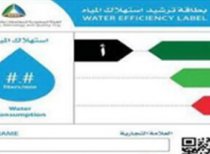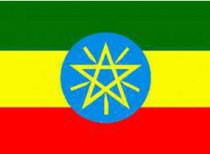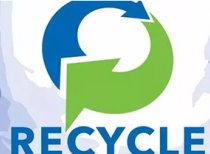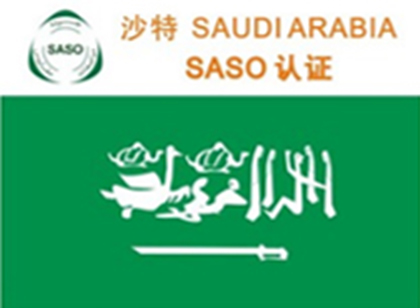Authentication serviceProduct
Where you are at the moment:Home > Authentication serviceMobile:15057933666 / 16605794567
Saudi Arabian Pre-shipment Conformity Certificate
SASO is the abbreviation of Saudi Arabian Standards Organization in English, namely Saudi Arabian Standards Organization. SASO is responsible for the formulation of national standards for all commodities and products. The standards also involve measurement system, marking and so on. The Ministry of Industry and Commerce of Saudi Arabia and SASO require all products covered by SASO certification standards to have SASO certification when entering Saudi Customs. Products without SASO certificates will be refused entry by Saudi Port Customs.
SASO product range
Category 1: Toys
Category II: Electrical and electronic products
Category III: Automobile Products
Category IV: Chemical Products
Category 5: Other products (10 product ranges)
The following products are not consumer products:
Medical instruments; Medical products;
Food; Military Products
ICCP (International Compliance Certification Scheme)
At present, the Middle East market has become an important area of China's foreign trade. More and more Chinese export enterprises sell their products to Saudi Arabia, Kuwait, the United Arab Emirates and other countries. If you are planning to import electrical products into these countries, then the International Compliance Certification Scheme is what you need to know and understand urgently. ?
The International Compliance Certification Scheme (ICCP) is SASO (The Saudi Arabian Standards Organization) of the Saudi Arabian Standards Bureau. In 1995, together with the Ministry of Commerce, the International Compliance Certification Scheme (ICCP) was formulated, which stipulates that imported goods must conform to the conformity assessment, pre-shipment inspection and certification, in order to ensure that imported goods fully meet the Saudi product standards before shipment. Since March 17, 2003, Kuwait's Industrial Authority (PAI) has also begun to implement ICCP. Most household appliances, audio-visual products and lighting products are within the scope of ICCP. In addition, the UAE has also started to implement ICCP since May 31, 2003.
SASO ICCP Plan in Saudi Arabia
The two basic elements of the plan are:
1) All specified products must conform to Saudi Arabian technical regulations or relevant international standards;
2) ICCP Certificate (CC) must be held with the goods for clearance of a specified batch of products.
When arriving at the port of entry of the importing country, the goods without CC certificate may be rejected or required to be sampled for testing. If it fails to meet the requirements of the importing country, it will be ordered to return to the port of shipment, resulting in unnecessary delays and losses for the exporter or manufacturer.
Certification body: KSAICCP
Main Requirements of SASO for Electronic and Electrical Products
1. Saudi standards are based on IEC standards of the International Electrotechnical Commission and increase national differences.
2. The rated voltage is AC 127V or 220V/60Hz, and the frequency is 60Hz.
3. Saudi Arabia is in the tropics, so product design should be suitable for the tropical climate.
4. EMC mandatory requirement. On October 1, 2003, the requirement of compulsory electromagnetic compatibility (EMC) for electronic and electrical products sold to Saudi Arabia began.
5. Plugs need to conform to the SSA444-443 standard. It is noteworthy that all plugs are flat needles. Since November 9, 2002, all the products shipped should not, in principle, make the VDE plugs of round needles shipped alone.
6. According to the requirements of Saudi standard KSA1278-1279, the environmental temperature tested should be based on the tropical climate conditions, such as temperature rise test, humidity gain and loss will have an impact.
7. According to the requirement of KSA380, the frequency range of audio products with radio function is also required to be tested. These include long wave, medium wave, short wave and ultrawave, which have different range requirements.
8. In the content of the label, all products must indicate the full name of their origin. Audio products with radio function should also mark the range of the radio frequency at the conspicuous place of the nameplate or the appearance of the product. Lighting products need to be labeled with ambient temperature (TA), while other products are required to label with tropical label (T).
Three Ways to Acquire COC Certificate
ICCP provides three ways for exporters or manufacturers to obtain CoC certificates. Customers can choose the most appropriate way according to the nature of their products, the degree of compliance with standards, and the frequency of shipments. CoC certificates are issued by SASO-authorized SASO Country Office (SCO) or PAI-authorized PAI Country Office (PCO).
Approach 1: Pre-shipment Standard Achievement Verification
This method is most suitable for exporters or manufacturers with very few deliveries. Before each shipment, it is necessary to apply for PSI and PST before shipment. If both of them are qualified, they can obtain the CoC certificate.
Way 2: Registration and pre-shipment inspection
This method is suitable for most customers. Its advantage is that although each shipment inspection (PSI) is necessary, each shipment does not need to be tested before shipment (PST). Customers can obtain a Statement for Registration (SfR) certificate by submitting a certificate of conformity, and providing a test report conforming to the importing country and relevant international or domestic standards, and stating that the product has met the basic requirements and national differences of the importing country.
Approach 3: Formal Accreditation Certificate
This method can not only save the inspection fee or test fee before each shipment, simplify the repetitive application procedure, but also ensure the delivery time. Therefore, it is favored by some large companies that deliver more frequently or on a larger scale and pay attention to quality and reputation. Statement for Licence (SfL) certificates can only be obtained for products of exporters or manufacturers that fully meet the mandatory standards of importing and exporting countries. The certificate is valid for one year and can be renewed by submitting an updated factory inspection report and paying an annual fee before its expiration. Products with SfL certificates no longer need to be inspected before shipment (PSI) for each shipment, but reduced to a few spot checks per year (usually 2-3 times per year, depending on the product condition).
Main Procedures for SASO Certification
The following steps are needed for manufacturers to obtain SASO certification and export products to Saudi Arabia:
1. Apply to the consulting company to inform the enterprise of the product certification procedure according to the product category and the requirements of SASO.
2. Enterprises submit product samples for inspection in accordance with the certification procedure. Some products (such as some motor vehicles and accessories) need factory inspection.
3. After passing the product test, the enterprise obtains the SASO certificate; if the product fails to pass the test, the enterprise will get a detailed explanation report;
4. When the products are exported to Saudi Arabia, the SASO certificate must be issued when the goods enter the customs. The technical personnel of Saudi Arabian Standards Organization will inspect the certificate. If the SASO certificate is not issued, the products will be refused entry or sampled to the laboratories of Saudi Ministry of Industry and Commerce or Saudi Arabian Standards Organization for testing. If the test is not qualified, the products will be refused entry. All expenses shall be borne by the exporting enterprises.
Cosmetics SASO certification test standards are as follows:
1. Toothpaste, using SASO80 1 and SASO802 standards;
2. Shampoo, using SASO724 and SASO725 standards;
3. Soap, using SASO493 standard;
4. Skin cream, using SASO1513 standard;
5. Hair milk, using SASO1515 standard;
6. Hair care oil, using SASO1788 and SASO1789 standards;
7. lipstick, with SASO1871 and SASO1872 standard;
8. nail polish, with SASO2186 and 2193 standard.
9. talcum powder, using SASO 1750 and SASO 1751 standards;
10. Nail flower, using SASO 2823 and SASO 824 standards;
11. Deodorant, using SASO1794 and SASO1795 standards;
12. Shaving cream, using SASO1387 and SASO1388 standards;
13. Hand washing liquid, using SASO 2614 and SASO 2615 standards.
EEL Certificate for Energy Efficiency Label Registration of Lighting Products - SASO 2870, Saudi Arabia
The Ministry of Industry and Commerce of Saudi Arabia issued a bulletin stipulating that the export of lighting products including standard SASO 2870:2015 from 9 February 2016 to Saudi Arabia must compulsorily meet the requirements of SASO EER energy consumption certification.
Standard No. SASO 2870:2015
Standard full name: Energy Efficiency, Functionality and Labeling Requirements for Lighting Products Part1
I. Product Scope
Including: ordinary household or similar, directional and non-directional bulbs used in Saudi Arabia, mainly including AC or DC power supply incandescent bulbs, self-ballasting fluorescent lamps (energy-saving lamps), self-ballasting LED bulbs and halogen bulbs.
Excludes: lamps, lamp controllers, and non-ordinary lighting bulbs (such as signal lamps, infrared heating lamps, lamps in other household appliances, and other special purpose lamps for professional purposes).
2. Excerpts of Standard Requirements
1. The standard clearly states that both English and Arabic versions of product instructions and warnings must be available.
2. For special purpose light bulbs, the expected use of the product must be clearly stated in the packaging and other information provided, and the product is not suitable for ordinary household lighting.
3. For light bulbs for general household or similar purposes, the criteria are mainly assessed as follows:
(1) Lamp energy efficiency grade: mainly divided into seven grades: A, B, C, D, E, F and G.
(2) Performance requirements of bulbs: such as life, lumen maintenance, switching cycle, start-up time, color rendering index and power factor.
(3) The following information must be displayed on the bulb: trademark, input voltage, rated power, country of origin. The above information must be clearly labeled in English and/or Arabic on labels, packaging, instructions and websites.
(4) Assessment requirements for hazardous substances in light bulbs: including lead (Pb), cadmium (Cd), chromium (Cr6+), polybrominated biphenyls (PBB), polybrominated diphenyl ethers (PBDE) and mercury.
(5) Energy Efficiency Label Requirements for Light bulbs: The label must be on the packaging and be clearly visible to consumers.
Commodities and products exported to Saudi Arabia are subject to SASO certification.
SASO refers to the Saudi Arabian Standards Organization, which is responsible for the formulation of national standards for all commodities and products, and the design of measurement systems and labels in the standards.
Many of the SASO standards are established on the basis of safety standards of national organizations such as the International Electrotechnical Commission. At the same time, Saudi Arabia has added special projects to its own civil and industrial voltage, geography, climate environment, national and religious customs and other standards. The Ministry of Industry and Commerce of Saudi Arabia and SASO require all SASO certification standards to include products that must hold SASO certification when entering Saudi Customs. Otherwise, the products will be refused entry by Saudi Port Customs. It is believed that the above-mentioned "SASO 2870:2015 - Energy Efficiency, Function and Label Requirements of Lighting Products" is a supplement to SASO certification, and enterprises exporting products to Saudi Arabia should pay special attention to it.
Energy Efficiency Label Requirements for Lighting Products Applied for SASO Certification
Registration data:
1. Customers are required to register SASO accounts with business licenses;
2. Energy efficiency report;
3. Product label;
4. Packaging boxes for products
4. Packaging boxes of products;
5. Trademark pictures;
6. Manufacturer's Web Site
Cycle:
1. Report for 2 weeks;
2. The application period is 2 weeks.
3. Payment calls, Q calls;
4. If the application is successful, customers can get energy efficiency labels and certificates.
5. Energy efficiency label fee is also charged by grade. Please call/call Q in detail.

25
2018-12
Implementing Requirements for
The Government of Saudi Arabia recently issued the latest implementation requirements for the Saudi Product Safety Plan project "SALEEM"···
25
2018-12
Ethiopian COC product testing
Ethiopia's Ministry of Trade recently issued 124 National Compulsory Standards (CES) and required products to be tested and conformed accordingly.··
25
2018-12
New Regulations for Certificat
New Regulations for Certification of Degradable Plastic Products in Saudi Arabia

 Hotline:
Hotline:

